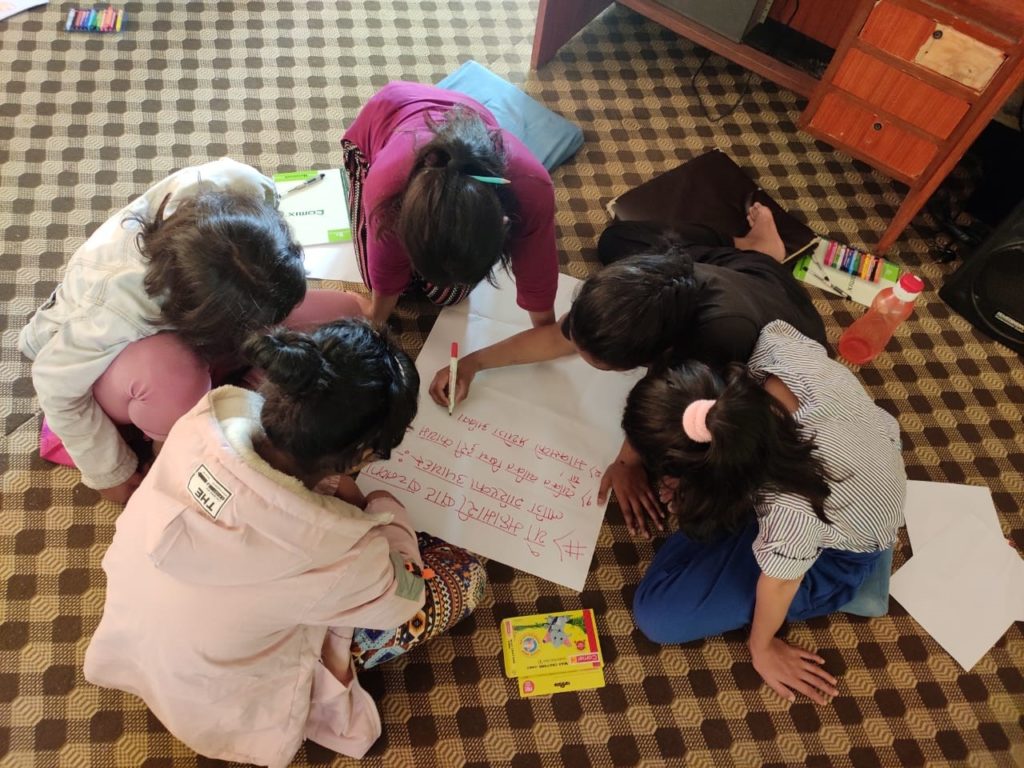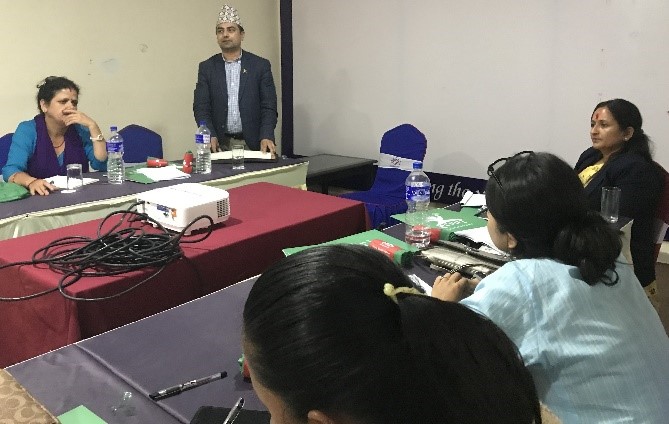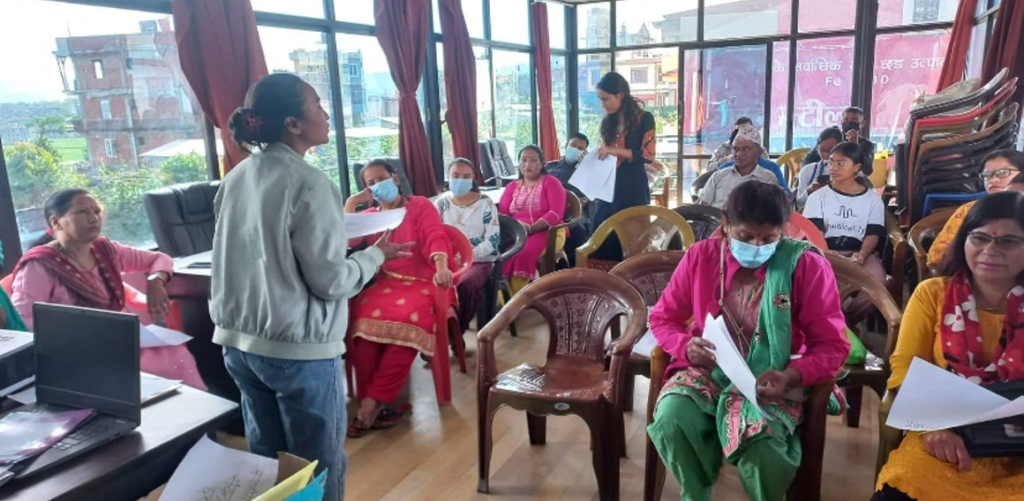
We were all gathered together after a long time. Even though we have been a team for almost a year, many things kept us from coming together under the same roof and COVID-19 was one of the biggest reasons. The gathering was the first annual review and planning meeting for the “Together for Protection Project” and the people gathered were the team that made the project a possibility.
The meeting was held in Nagarkot thirty-two kilometers away from Kathmandu and one of the hills surrounding the valley. With the beautiful view of the Himalaya insight, the meeting proceeded to reflect on the first year of the project and all the highs and lows we underwent together.
Looking back:
We started by reflecting on year one and proceeded into planning for the second year. As we remember the year that went by, the impact of COVID-19 was something we could not escape both personally as well as professionally as a team. The lockdown imposed by the government of Nepal was further extended in the form of prohibitory order, enforced restrictions on mass gatherings, the vehicle movements were limited bringing life to a standstill. This meant the project would also be directly affected by it, many activities had to be pushed back and even the kick-off of the project was conducted virtually. The initial months of the project were spent conducting meetings and training virtually. Even after the prohibitory order was partially lifted due to the fear of spreading COVID-19 the program implementation was still slower than planned.
Adding to the existing difficulties of COVID-19 was the political turmoil in Nepali national politics. After the former Prime Minister, KP Oli lost the vote of confidence in the House of Representatives, Sher Bahadur Deuba was appointed the new Prime Minister of Nepal on 13th July 2021. With the change in government, the cabinet at the Provincial level was also re-shuffled. This meant a huge backlash to the project’s policy advocacy. The regulation supporting the Act Related to Children (2018) which was at the last stage of being approved by the cabinet before coming into enforcement was held and sent back with the rest of the policy documents proposed by the previous government. Following the change in the new government 17 out of 21 ministries were without respective ministers, including the Ministry of Women, Children, and Senior Citizen. This posed a huge challenge for the sub-committees within the ministry as the decisions and meetings during this period was regarded invalid. This also affected the project directly as the National Committee for Controlling Trafficking (NCCHT) hosted by the Ministry of Women, Children, and Senior Citizens. An important stakeholder for the project was in the stage of stagnation without the minister.
As the project reached the end of the first year the project started picking up pace. By the fourth quarter, it was comparatively easy for the project partners to carry the field implementation. But as the COVID-19 cases went down and the government offices opened, it was overloaded with other bureaucratic and administrative responsibilities including organizing the vaccination program in their respective areas. This made it hard to implement activities with the local representatives and officials. There were frequent changes in the plan some activities even got moved to year two. Other stakeholders which were hard to work with were children. The COVID-19 affected the education of children, it was challenging for the education board and the schools to carry out annual examinations. As the prohibitory order was eased schools started conducting their annual exams due to which it challenging to plan activities with child club members.
Looking Forward:
We were all gathered together after a long time. Even though we have been a team for almost a year, many things kept us from coming together under the same roof and COVID-19 was one of the biggest reasons. The gathering was the first annual review and planning meeting for the “Together for Protection Project” and the people gathered were the team that made the project a possibility.
The meeting was held in Nagarkot thirty-two kilometers away from Kathmandu and one of the hills surrounding the valley. With the beautiful view of the Himalaya insight, the meeting proceeded to reflect on the first year of the project and all the highs and lows we underwent together.

The COVID-19 pandemic was a tough period for us all, we lost people close to us, were in constant fear of getting infected, and lived with clouds of uncertainty. Despite these challenges, the project team went ahead with all hands on the dock. The strength and resilience exhibited by the field team were what motivated the team. Despite being COVID-19 positive some of our colleagues were working on their laptops from the hospital beds. Even on an organizational level, colleagues from different projects filled in and help with program coordination when our team members were infected by COVID-19. The support and appreciation from the community towards the project were motivating and encouraging. Everyone was eager to break out from the stagnation and get back to living a “normal life”, hence when the situation eased for the program activities to be implemented although a little rushed it was well-received by the government agencies as well as the communities.
As we entered year two there are still much uncertainty in our path, the backlog from year one is one of our biggest challenges. When we left to attend the meeting at Nagarkot, the tension was evident within the team of the load we carry. But as we proceeded we tried to untie the knots, resolve all the differences, pull our strength together, and most importantly we came together as a team. The pandemic taught us all how fragile life is but it also taught us the strength of togetherness and the power of kindness, and with this here we are marching together with our learnings from year one and towards our goal.





